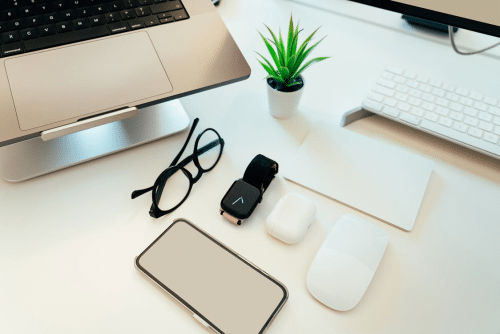Social Media Detox: Real Benefits and Risks
Brian Taylor May 6, 2025
In today’s hyper-connected world, it’s not uncommon to feel overwhelmed by constant notifications, curated lives on display, and the pressure to stay online. Many people are turning to social media detoxes—intentional breaks from platforms like Instagram, TikTok, Twitter, and Facebook—to reclaim their time, mental space, and focus. But what are the actual benefits and risks of a social media detox?

Understanding the Concept of a Social Media Detox
A social media detox involves temporarily (or permanently) refraining from using social networking sites. People do this for various reasons: to reduce stress, improve focus, reconnect with the offline world, or address unhealthy habits formed around social media usage. With more than half of the global population on social media, the idea of taking a break is gaining traction among mental health professionals and digital wellbeing advocates.
What Are the Real Benefits of a Social Media Detox?
Improved Mental Health
Numerous studies link heavy social media use to anxiety, depression, and low self-esteem. Taking a break allows users to reset mentally and emotionally. A 2020 study from the University of Pennsylvania found that limiting social media use to 30 minutes per day significantly reduced feelings of loneliness and depression. Social media often becomes a space for comparison, and stepping away from that environment can help individuals rebuild a more grounded sense of self-worth.
Enhanced Productivity and Focus
Social media can be a major distraction, constantly breaking concentration with alerts, likes, and endless scrolling. Detoxing can improve focus, encourage deeper work, and reduce the “scroll reflex” that breaks our attention spans. In fact, many users report regaining multiple hours per day once they step away from social apps.
Better Sleep Quality
Blue light and bedtime scrolling are known sleep disruptors. Using phones late at night impacts melatonin production, which regulates sleep cycles. Reducing screen time—especially at night—can improve sleep hygiene and overall rest, leading to better physical and mental health.
Increased Real-Life Connection
Without the digital barrier, people often find more opportunities to connect meaningfully in person. Detoxing also helps break the habit of using your phone as a social crutch in awkward or idle moments, allowing for deeper relationships and more presence during real-world interactions.
More Time for Hobbies and Personal Growth
Without social media as a default distraction, people often rediscover old passions or pick up new skills. Whether it’s reading, writing, cooking, or learning a language, a detox can offer space to grow in ways that social media often consumes.
Reduced Information Overload
Constant exposure to news, updates, and viral content can lead to cognitive fatigue. Detoxing helps reduce the mental clutter and gives your brain room to rest and reset.
What Are the Potential Risks of a Social Media Detox?
FOMO (Fear of Missing Out)
Detoxing can initially increase anxiety, especially if you’re used to using social media to stay informed or connected. You may feel disconnected from friends or cultural events, which could lead to feeling isolated or left behind.
Professional Setbacks
If you rely on social media for work—such as digital marketing, branding, or networking—taking a break may affect business visibility or lead generation. Professionals should consider partial detoxes or scheduling tools to maintain some online presence.
Social Isolation
Ironically, a social media detox meant to improve mental health can backfire if it leads to complete withdrawal from your social circles. It’s important to maintain communication through other means like texting, calls, or in-person meetups.
Habit Withdrawal Symptoms
Like any habit, quitting cold turkey can be hard. You may experience boredom, restlessness, or even phantom notification vibrations. Awareness and coping strategies are key to navigating these withdrawal-like symptoms.
How to Do a Social Media Detox Safely and Effectively
Start with Clear Intentions: Define your goals—mental clarity, more time, better sleep, etc.
Set a Timeframe: Decide if it’s a weekend, a week, or a month.
Let Others Know: Inform friends or followers to avoid miscommunication.
Delete Apps: Removing apps from your phone can reduce temptation.
Fill the Gap: Plan activities—reading, journaling, exercise—to replace scrolling.
Reflect Often: Keep a journal of your experiences and changes in mood or behavior.
Use Digital Wellbeing Tools: Apps like Screen Time or Digital Wellbeing can help you monitor and limit your usage gradually.
Who Benefits Most from a Social Media Detox?
A social media detox can benefit anyone, but it’s especially helpful for:
Students who find their attention compromised by digital distractions
Parents looking to model healthy screen behavior
Professionals dealing with burnout or digital fatigue
Anyone who experiences mood changes triggered by online engagement
Finding a Balanced Approach to Social Media Use
You don’t necessarily have to quit social media altogether to benefit. Many people find success with:
Time-restricted usage: Setting daily or weekly limits
Platform-specific detoxes: Avoiding only the most draining platforms
Content curation: Unfollowing accounts that trigger stress or comparison
Taking conscious control of your online behavior can help you maintain the benefits of a detox without full disengagement.
For related content, check out Digital Decluttering: How to Organize Your Online Life and The Psychology of Colors in Social Media Ads to explore how our digital environments influence behavior.
Final Thoughts: Why You Might Want a Social Media Detox
Whether you do it for a weekend or a month, a social media detox can offer clarity, calm, and better connection—to both yourself and others. While there are risks, especially for those who rely on social platforms professionally, the benefits of improved mental health, better sleep, and increased productivity are compelling. As our digital lives continue to grow, understanding how to pause and reset becomes a valuable skill in modern self-care.
References
- University of Pennsylvania. (2020). Social Media Use and Mental Health Study
- Harvard Business Review. (2022). The Case for Digital Detox
- Pew Research Center. (2023). Teens, Social Media & Technology
- American Psychological Association. (2023). Digital Media Use and Well-Being
- Mayo Clinic. (2024). Technology and Mental Health





